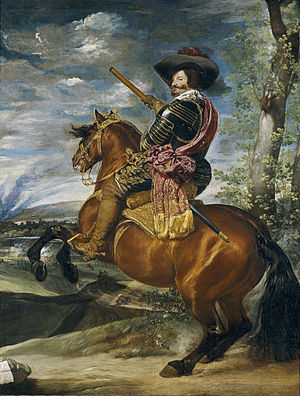-

World Language Spanish III Curriculum Guide
(Including Course Objectives, Monthly/Weekly Content, and Scope and Sequence)~may vary throughout the year.
Spanish III Course Description: In this expanding engagement with Spanish, students deepen their focus on four key skills in foreign language acquisition: listening comprehension, speaking, reading, and writing. In addition, students read significant works of literature in Spanish, and respond orally or in writing to these works.Continuing the pattern, and building on what students encountered in the first two years, each week consists of a new vocabulary theme and grammar concept, numerous interactive projects reinforcing vocabulary and grammar, reading and listening comprehension activities, speaking and writing activities, and multimedia cultural presentations covering major Spanish-speaking areas in Europe and the Americas. The course is aligned to the NYS Standards and National Standards as set forth by ACTFL (the American Council on the Teaching of Foreign Languages).
Course length: September - May Prerequisites: World Language 200/ Spanish II, or equivalent
Overall Course Objectives: The High School Spanish III course helps students:
- Engage in language learning
- Master common and some specialized vocabulary terms and phrases
- Comprehend a wide range of grammar patterns
- Instigate and continue increasingly involved conversations, and respond appropriately to increasingly involved, or open conversational prompts
- Generate language incorporating basic and some specialized vocabulary and a range of grammar patterns
- Read, write, speak, and listen for meaning in Spanish
- Recognize and respond to significant works of literature in Spanish
- Analyze and compare cultural practices, products, and perspectives of various Spanish-speaking countries
- Regularly assess progress in proficiency through quizzes, tests, and speaking/writing submissions
Weekly Content Vocabulary Theme
Each week presents a new set of vocabulary words through various self-correcting activities. A printable vocabulary list for “Lista lunes” (Ready for Monday)
Grammar Concept
Each month we introduce a new grammatical pattern. The concept is introduced through sentence comparisons and presented in a printable explanation of the pattern.
Reinforcement Activities A range of interactive games (incrementally increasing in challenge) helps students reinforce vocabulary and grammar concepts. These activities may be completed multiple times so that students can better retain and apply the new information. Tarea Mensual, Flash cards, music videos, cultural presentations, etc.
Presentation of Culture through Culture Videos
Every other week students learn about various cultural aspects (e.g. practices, products, and perspectives) of a Spanish-speaking country. Culture videos present students with short video explanations about cultural aspects of various Spanish-speaking countries from a native of that country.
“Out of Seat” Activities Several times during the year, students are given opportunities to use the language “outside” the course. These are specific assignments directing students to interact in a genuine way with the Spanish language or Spanish-speaking cultures. Tarea del Mes, Choice Boards, etc.
Realia Several times during the year, students work to decipher the key messages and significant details in Realias. In Realias, students confront authentic or semi-authentic texts in real-world, everyday situations. These encounters are neither trivial, nor far beyond a student's comprehension level, but are texts to which students can respond and that move them to a deeper understanding of the target language and culture at the same time. Sample texts include recipes, student class schedule, newspaper advertisements, etc.
Oral and Written Activities Each week, students complete oral and written activities. These activities give students a chance to become more familiar with the speaking and writing patterns of Spanish by applying them in communicative situations.
Literature/Art Highlights Once a month, students read and respond (in speaking or writing) to a significant work of Spanish literature
Listening and Reading Comprehension Activities Each week contains either a focused reading comprehension activity, or a listening comprehension activity. These activities help students to develop listening and reading comprehension skills. Based on the vocabulary, grammar, and/or culture concepts presented that week, and follow up assessments challenge students to identify the main ideas and significant details of these rich texts based on everyday communicative situations.
Assessments: Quizzes of culture, speaking, spelling, listening and reading comprehension verify that students have captured facts and understandings.
- Focused Listening or Reading quizzes verify that students comprehend the main ideas or significant details of target passages or conversations.
- Project- Based Assessments will display evidence that students comprehend the topic
- End-of-week quizzes assess students’ mastery of the vocabulary words and grammar concept presented that week, and include an oral or written assessment.
- Literature Highlights verify that students recognize main ideas and important details and can respond to significant works in Spanish literature.
- IPA (intergrated Performance Assessment) assesses students’ mastery of the semester’s contents up to their current place on the calendar, and includes project based assessments. This will indicate progression of comprehension in Spanish.
~~~~~~~~~~~~~~~~~~~~~~~~~~~~~~~~~~~~~~~~~~~~~~~~~~~~~~~~~~~~~~~~~~~~~~~~~~~~~~~~~~~~~~~~~~~~~~~~~~~~~
Spanish 3-Course Outline
Textbooks: Spanish for Mastery 3 (Blue), Avancemos 3 (Purple)

September/ October:
Weekly Content Vocabulary Theme Topics: Back to School, Family, Camping, Vacation, Activities, Volunteer Projects, Making requests, Using Media
Grammar Concept: Verb Booklet- create for year-long reference
Recycle Spanish 1 & 2 materials: Ser, adjectives, tener, gustar, ir a, estar, present tense verbs, stem-changing verbs, daily schedules, descriptions, numbers 0- 2,000,000, locations, feelings, going places, telling time, adjective agreement, present progressive tense, Preterit , Imperfect, reflexive verbs, sport, body parts, and daily routines days of the week, sports, body aches, tener, stem-changing verbs and gustar.
Assessment: Examen Diagnostico given to indicate strengths and weaknesses. Various spelling and vocabulary quizzes.
Writing & speaking:Boardwork/ daily writing and speaking activities
Celebrations- El 12 de octubre, Day of the Dead.
Culture: Legends c2,Mexico Indigenous Food origins c4,
Literature: Octavio Paz, Laura Esquivel, Sandra Cisneros
Project Based: Brochure of famous Mexican Beaches
Cortometrajes: La Hada/, El Internado( 12 disc series)
Feature Film: The Colors of the Mountain
November/ December:
Weekly Content Vocabulary Theme Topics: Environmental, Expressing Opinions
Grammar Concept: Preterit Tense
Recycle: Irregular preterit tense, Reflexive Verbs
Assessment: Various spelling and vocabulary quizzes, reading documents and realia.
Writing and Speaking: Boardwork/ daily writing and speaking activities
Celebrations:- Dia de los Muertos, Ferias, Bailes Típicos
Culture: Carlos Balaguer, Los Maya, Miami (Calle Ocho)
Literature: En la Ocho y La Doce Roberto Fernández
Project Based:
Cortometrajes: Alma, Cuerdas
Feature Film: Casi Casi
January:
Weekly Content Vocabulary Theme Topics: Media, Technology, Environment, Rainforest, Weather
Grammar Concept: Imperfect Tense
Recycle: IR a+ infinitive, Preterite tense regular and irregular verbs,(- car, -gar, -zar), Clothing, shopping, going places, tener, tener expressions, ir, after school activities, Stem- changing verbs, gustar, family and chores, Sports, staying healthy, parts of the body, jugar, saber, conocer, personal a, telling time, foods, beverages, expressing feeling, aches & pains
Assessment: Various spelling and vocabulary quizzes, reading documents and realia.
Writing & speaking: Boardwork/ daily writing and speaking activities
Celebrations: Posadas, día de los Reyes
Culture: Puerto Rico, Rock Latino, Son Cubano, Musica Andina,
Literature: Los reyes magos
Cortemetraje: Señor ratoncito Pérez
Project Based
Feature Film: A Better Life
February:
Weekly Content Vocabulary Theme Topics: Weather, Travel, Hotel, Airport
Grammar Concept: Present Perfect tense
Recycle: House and home, planning a party, chores, ser and estar, stem-changing verbs, irregular verbs, tener expressions, weather, telling time
Assessment: Various spelling and vocabulary quizzes, reading documents and realia.
Writing & speaking:
Celebrations:
Culture: Mexico, Mariachi, Bolero,
Literature:
Project Based
Feature Film: Bella
March/ April:
Weekly Content Vocabulary Theme Topics: Immigration, Travel, Asking for directions, Food
Grammar Concept: Commands
Recycle: ordering food , family, activities, asking for directions
Assessment: Various spelling and vocabulary quizzes, reading documents and realia.
Writing & speaking:
Celebrations: Locura de Marzo
Culture: United States, Hip Hop Latino, Bachata,
Literature:
Project:
Feature Film: Under the Same Moon
April/ May:
Weekly Content Vocabulary Theme
Grammar Concept: Por vs. para, prepositions, Future Tense
Recycle: Daily routines, vacation plans, Ir a near future tense, Preterit tense of hacer & ir, reflexive verbs
Assessment: various quizzes, speaking tasks
Writing & speaking: IPA- Hispanic Artist challenge
Celebrations: Semana Santa, Cinco de Mayo
Culture: Spain, Flamenco, Sevillanas
Literature:
Feature Film shorts: Rick Steve's Spain
May/June:
Final Exam Review. After spring recess, we will complete speaking assessments. We will review listening, reading and writing in Spanish.
Select a School...
Select a School
- 79th Street Elementary
- Harry F. Abate Elementary
- Cataract Elementary
- Hyde Park Elementary
- Henry J. Kalfas Elementary
- Geraldine J. Mann Elementary
- Maple Avenue Elementary
- Bloneva Bond Primary School
- Gaskill Preparatory
- LaSalle Preparatory
- Niagara Falls High School
- Community Education Center
- COVID-19 Crisis Management

